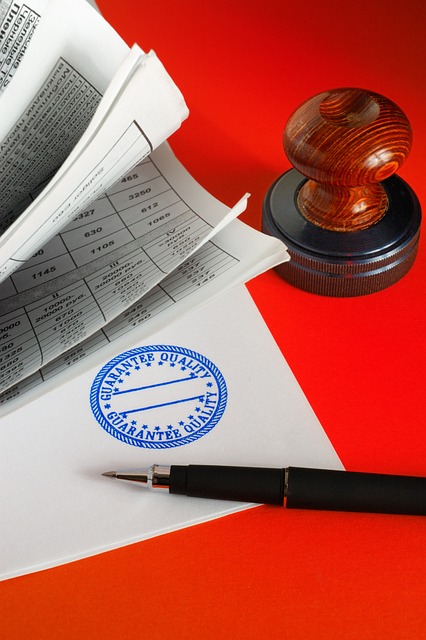UK translation services are essential for ensuring that translations of licenses and permits are both linguistically accurate and legally compliant. These services adhere to stringent professional standards set by organizations like the Institute of Translation and Interpreting (ITI) and the Chartered Institute of Linguists (CIOL), which guarantee that translators have the necessary expertise and ethical conduct. Professionals in this sector are well-versed in legal requirements, including the General Data Protection Regulation (GDPR) and UK's Data Protection Act 2018, to protect sensitive information and maintain confidentiality. They manage a diverse range of documentation with precision and cultural sensitivity, ensuring that all translated documents are legally sound and reflective of their original intent. This commitment to quality and compliance makes UK translation services invaluable for individuals and organizations dealing with official documentation, particularly where licenses and permits are concerned.
Navigating the UK’s regulatory landscape for translation services can be a complex task, especially for those looking to offer or expand professional translation and interpreting businesses. This article delves into the essential aspects of licenses and permits required within this sector, ensuring compliance with UK laws. We will explore the legal framework, the specific types of licenses necessary for professional translators, the permits required to operate a translation business, and the certification process that underpins the credibility of UK translation services. Additionally, we’ll examine the critical role of accreditation bodies in maintaining high standards within the industry and discuss the importance of adhering to data protection laws. For businesses with multilingual websites or documentation, special considerations are paramount in the competitive UK market. Understanding these elements is crucial for translators and translation service providers aiming to operate legally and effectively in the UK.
- Understanding the Legal Framework for Translation Services in the UK
- Types of Licenses Required for Professional Translators in the UK
- Overview of Permits Needed for Operating Translation Businesses in the UK
- Navigating the Certification Process for UK Translation Services
- The Role of Accreditation Bodies in the UK Translation Sector
- Compliance with Data Protection Laws for Translators in the UK
- Special Considerations for Multilingual Websites and Documentation in the UK Market
Understanding the Legal Framework for Translation Services in the UK

Navigating the legal framework for translation services in the UK involves a comprehensive understanding of the regulations governing professional translators and translation companies. The UK’s legal landscape mandates that translations, especially those pertaining to official documents, be performed by qualified individuals. This ensures the accuracy and integrity of translations across various contexts, from legal proceedings to business contracts. The Administration of Justice Act 1985 stipulates that certain official documents must be translated by a translator who is either appointed or recognized by an official body, thereby underscoring the importance of professionalism in translation services.
To engage in UK translation services professionally, translators must comply with the relevant legal requirements, which may include obtaining specific licenses and permits. The Chartered Institute of Linguists sets out a Code of Professional Conduct for its members, advocating for high standards in language services. Additionally, the EU’s MDL (Machine-Readable Decision List) Directive and the UK’s own translation service frameworks establish clear guidelines on the use of technology and human expertise in translations, with a focus on maintaining the authenticity of translated materials. This regulatory environment underscores the necessity for translators to be not only linguistically proficient but also knowledgeable about legal standards and ethical practices within the UK’s translation services sector.
Types of Licenses Required for Professional Translators in the UK

In the UK, professional translators must possess a array of licenses and permits that facilitate their ability to offer UK translation services both domestically and internationally. The primary license required is the Certificate in Translation from the Chartered Institute of Linguists (IoL), which attests to a translator’s proficiency and professionalism. Additionally, translators working within the European Union may need to secure the Right to Work in the UK, ensuring compliance with post-Brexit regulations. This certification is crucial for those seeking to translate official documents or provide services to public sector bodies. For specialized fields such as legal or medical translation, further qualifications and licenses are often necessary, reflecting the specific knowledge and expertise required. These can include recognition by relevant professional bodies like the Institute of Translation and Interpreting (ITI) or the Association of Translation Companies (ATC). It is imperative for translators to stay abreast of any changes in regulations that may affect the types of licenses and permits UK translation services providers are required to hold, as this can impact their legal capacity to translate certain documents.
Furthermore, translators dealing with sensitive or classified information may require security clearance, which is a separate license ensuring they handle such data responsibly. This is particularly pertinent for governmental and military texts, where the accuracy and confidentiality of translations are of utmost importance. In all cases, translators must ensure their licenses and permits are current and meet the specific demands of their field of expertise. Engaging with UK translation services that adhere to these licensing requirements guarantees clients receive high-quality translations from professionals who have undergone rigorous evaluations and have demonstrated a commitment to maintaining the highest standards in their work.
Overview of Permits Needed for Operating Translation Businesses in the UK

Operating a translation business in the UK necessitates adherence to specific regulatory requirements, which include obtaining the appropriate licenses and permits. The first step for any translation service provider is to register with Her Majesty’s Revenue and Customs (HMRC) for tax purposes. This ensures compliance with UK tax laws, including Value Added Tax (VAT), if applicable. Additionally, depending on the size and structure of the business, registration as a limited company or sole proprietorship might be required.
Beyond tax registration, translation businesses must also consider the ethical standards set forth by professional bodies such as the Institute of Translation and Interpreting (ITI) or the Chartered Institute of Linguists (CIOL). While membership is voluntary, it demonstrates a commitment to maintaining high-quality standards and adhering to a code of professional conduct. Moreover, certain contracts with public sector bodies may require certification from these associations. Furthermore, if the translation service involves driving for client meetings or to deliver hard copies of translations, a UK driving license and possibly commercial vehicle insurance are necessary. Additionally, compliance with the General Data Protection Regulation (GDPR) is crucial for safeguarding client information. Ensuring all legal requirements are met will enable translation businesses in the UK to operate smoothly and maintain the integrity and reputation of UK translation services on a global scale.
Navigating the Certification Process for UK Translation Services

When engaging with UK translation services, it is imperative to understand the certification process that underpins the legitimacy and authenticity of translated documents. These services often hold professional accreditations that guarantee their translations meet the highest standards of accuracy and compliance with legal requirements. Professionals in this field are adept at navigating the complexities of UK licenses and permits, ensuring that each translation is not only linguistically sound but also legally robust. The certification process within the UK is stringent, and translation services must adhere to specific regulations set forth by bodies such as the Chartered Institute of Linguists (CIOL) and the Institute of Translation & Interpreting (ITI). These accreditations serve as a testament to the translators’ expertise and their ability to provide legally acceptable documents for use within the UK or for submission to relevant authorities abroad.
Furthermore, when dealing with official UK licenses and permits, the translation service must employ certified translators who can offer an Apostille or a Notarized True Copy certificate as required. This certification verifies that the translated document is a true representation of the original, thereby facilitating its acceptance by governmental institutions, legal entities, and regulatory bodies both domestically and internationally. The process involves a meticulous review and validation of the translation, ensuring that it aligns with the exacting standards expected for official documentation. By choosing a UK translation service that is well-versed in these certification protocols, clients can be confident that their documents will be recognized and accepted without complications.
The Role of Accreditation Bodies in the UK Translation Sector

In the UK, the translation sector is a highly regulated field that demands precision and accuracy, especially when it comes to translating official documents such as licenses and permits. Accreditation bodies play a pivotal role in maintaining the integrity of UK translation services by setting standards and best practices for professional translators. These entities, like the Institute of Translation and Interpreting (ITI) or the Chartered Institute of Linguists (CIOL), ensure that translators who hold their accreditation adhere to a code of professional conduct and possess the necessary skills to deliver high-quality translations. This rigorous process is crucial for clients requiring UK translation services, as it guarantees that their documents are translated not only accurately but also with the appropriate legal nuances. The accreditation process itself involves a combination of formal qualifications, practical assessments, and peer reviews, which together validate an individual’s translation competencies within a given language pair. By upholding these standards, accreditation bodies contribute significantly to the credibility and reliability of UK translation services on both a national and international scale. This is particularly important for licenses and permits, where mistranslation can lead to complications or legal issues. Thus, when seeking professional UK translation services, engaging with translators who are accredited by reputable bodies ensures compliance with legal requirements and provides peace of mind that the translated content accurately represents the original text.
Compliance with Data Protection Laws for Translators in the UK

UK translation services must adhere strictly to Data Protection Laws, which are integral to protecting personal information and upholding individual privacy rights. Translators handling sensitive data within the UK must comply with the General Data Protection Regulation (GDPR) and the UK’s Data Protection Act 2018. These legal frameworks dictate how organisations, including translation services, collect, store, and process personal data. Professionals in this field are required to understand the principles set forth by these laws, ensuring they apply them diligently throughout the translation process. This encompasses obtaining explicit consent from data subjects for the processing of their information, maintaining records of data processing activities, and implementing robust security measures to prevent unauthorized access or data breaches. By adhering to these compliance measures, UK translation services can safeguard client confidentiality and maintain the integrity of the translations they provide, which is paramount in a profession where trust and reliability are key. Licenses and permits obtained by professional translators not only certify their linguistic abilities but also underscore their commitment to ethical and legal standards in data handling. This dual competence ensures that clients receive not only accurate translations but also assurance that their data is managed within a compliant framework.
Special Considerations for Multilingual Websites and Documentation in the UK Market

When navigating the process of translating UK licenses and permits for a multilingual audience, professional translation services play a pivotal role in maintaining clarity and compliance. The UK market boasts a diverse linguistic landscape, with a significant proportion of the population speaking languages other than English at home. This diversity necessitates that all relevant licenses and permits documentation be accurately translated to facilitate understanding and legal conformity for non-English speakers. Specialized translation services are equipped with expert linguists who are not only fluent in multiple languages but also well-versed in the technical language inherent to UK licenses and permits. This expertise ensures that translations are both legally and culturally accurate, bridging the gap between different language groups and public sector services.
In addition to linguistic proficiency, these translation services must be adept at handling various formats of documentation, from digital texts to physical certificates. They must also stay abreast of legal changes that affect the content and validity of licenses and permits. Multilingual websites and documentation in the UK market require a meticulous approach to both the written word and the cultural nuances embedded within regulatory texts. By offering precise, reliable translations, these services contribute significantly to inclusivity and accessibility within the UK’s public sector, ensuring that all individuals, regardless of their language proficiency, can engage with and benefit from the rights and opportunities that UK licenses and permits provide.
In concluding our exploration of the UK translation services sector, it is clear that navigating the legal landscape to legitimately offer these services requires a meticulous approach. Professionals must understand the legal framework governing translations, secure the necessary licenses and permits, and ensure compliance with data protection laws. Accreditation from recognized bodies further underscores a translator’s or translation business’s commitment to quality and adherence to UK standards. For those operating in the multilingual realm, special attention must be paid to website localization and document translation to effectively cater to diverse language groups within the UK market. By adhering to these guidelines and embracing professional certification, translators can confidently offer services that meet both regulatory requirements and client expectations.
